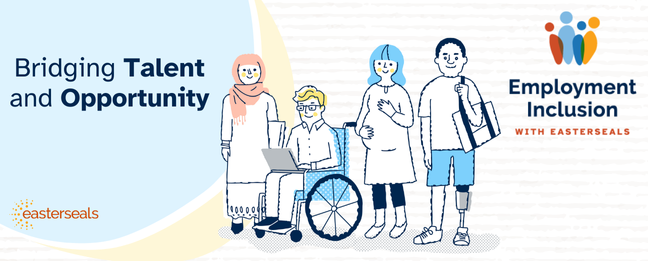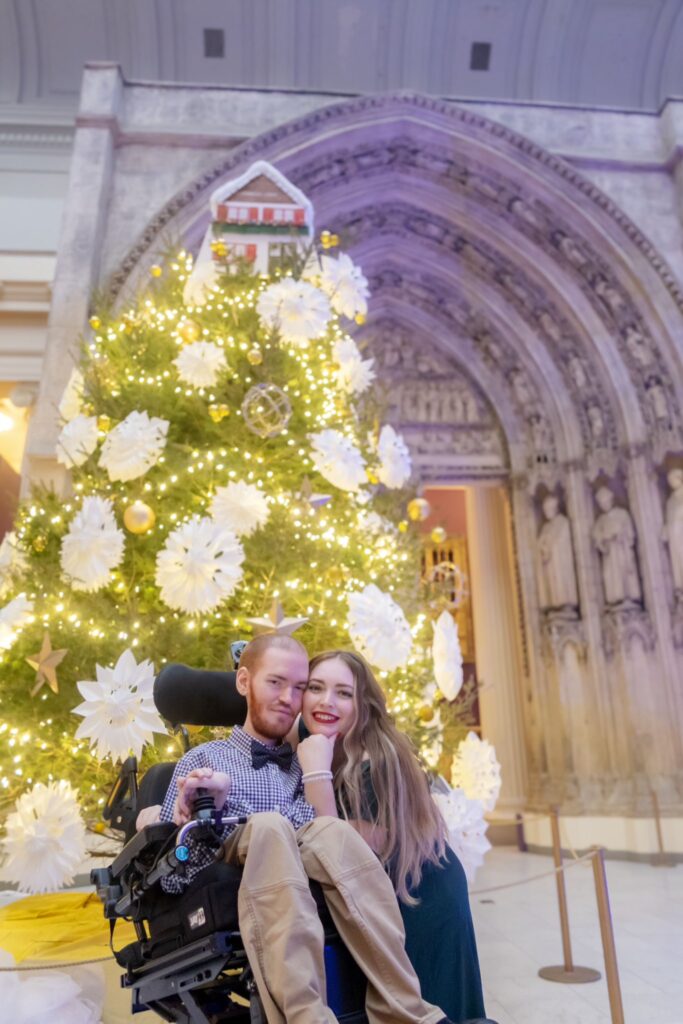Advice for Freelance Writers From an Award-Winning Disabled Games Journalist
by Blog Writers
 By Grant Stoner
By Grant Stoner
October marks National Disability Employment Awareness Month (NDEAM), a time to highlight the importance of equal opportunities within the workforce for disabled individuals. This year’s theme, “Access to Good Jobs for All,” reinforces the narrative that everybody is deserving of a well-paying job. And for disabled Americans still fighting for issues like marriage equality, financial security, and accessible spaces, it’s a step in the right direction for the government to acknowledge this aspect of the disabled experience.
For me, NDEAM allows me to reflect on my career as an accessibility reporter in the gaming industry. While I have yet to acquire a full-time job, my work as a freelancer has offered me numerous opportunities to earn money for things like savings, important life events, and even fun treats for friends and family. With my five years of experience, I wanted to share some tips for those interested in becoming a gaming journalist, more specifically, a disabled gaming journalist.

Grant and his girlfriend
Write, Write, and Write
This may seem obvious, but to be a journalist, you need to write. I’ve been professionally writing since 2019, publishing numerous reviews, developer interviews, community reports, and even opinion pieces on the state of accessibility in the gaming industry. But long before I had bylines at publications like IGN, WIRED, and Easterseals, I began learning how to convey my thoughts into cohesive sentences at my university’s school newspaper.
Since 2015, I’ve written with the goal of becoming a games journalist. While I initially had no intention of exploring accessibility and the disabled perspective with my stories, I always wanted to see my name on websites and within magazines that I grew up reading. And when I first started, I was admittedly terrible. My stories lacked emotion, instead, being nothing more than a checklist of a game’s features followed by a quick, ultimately meaningless sentence of whether I liked a title. I was never going to impress editors with my mediocrity. But with each review, each feature within the school newspaper, each draft returned by my editors, I became more confident in myself as a writer.
Despite graduating with a degree in Multiplatform Journalism, I will be the first to admit that I didn’t learn how to become a writer by attending college courses. Instead, my knowledge came directly from trial and error, as well as the guidance of my editors. And since higher education can be incredibly expensive and pose numerous barriers for disabled individuals, I’m here to tell you that you don’t need to have a degree to begin freelancing. You just need to prove to editors that you know how to write.
The Art of the Pitch

Before any good article comes to life, they all start as an idea. When writing independently, you don’t need the approval of others to begin developing your work. However, when freelancing, each article needs to capture the attention of whatever publication is worthy of your story. For example, with this very piece, I needed to convey to my editor – Hi, Erin! – that Easterseals’ readers would be interested in a feature exploring tips and tricks on how to freelance.
You need to provide samples for editors of your work. Show them why you are the best person to write the specific piece. If I’m pitching a story that deals directly with accessible innovations at studios like PlayStation, I’m going to demonstrate my knowledge on the subject through previous stories. And if you lack an extensive portfolio, utilizing your lived experience, particularly as a disabled individual, is just as important as having written examples.
Marginalized stories are best told by marginalized people. While it is possible for publications to write about disability and accessibility without hiring a disabled freelancer, you can prove to editors that your voice can provide nuance that others may lack. Did a company release a new piece of hardware, and do you have a physical disability? You can use this information to prove to editors that your years of using accessible devices makes you the right person for the job. Portfolios are important, but so is intrinsically understanding how to be disabled in the gaming industry.
Rejection Happens
When writing about subjects like accessibility and the disabled perspective, many publications often struggle to see the newsworthiness of these topics. Despite approximately 25% of the population living with some form of a disability, the nature of stories told about us continues to be framed as inspirational or pitiful. We still struggle to be viewed as confident and independent individuals, often infantilized for the enjoyment of others. And these preconceived notions and stereotypes of disabled people continue to plague the appeal of stories that actively push back against these beliefs. Unfortunately, this consistent uphill battle means publications may deny pitches.
My first freelance piece was published on October 5, 2018. Since then, I’ve published dozens of stories across numerous publications. Yet, for every story accepted, dozens have been rejected. And each reason can vary. From a lack of budgets to timeliness, and even an inability for editors to understand the importance of why certain stories need to be told means that I’m very familiar with rejection. While it’s important to acknowledge that rejection stings, it’s equally important to remember that one “no” does not make you a bad writer. As cliché as it sounds, the best piece of advice I can give is to keep pitching. Sometimes stories aren’t meant to be published, and sometimes it’s possible to save an idea for later, but a rejection is not a reflection of you as a writer.
I’m incredibly proud of the work I’ve done since I entered the professional space in 2019. And for this NDEAM, I’m incredibly thankful that I can continue doing this job I so dearly love. Yet, it’s important to remind others that disabled individuals belong in each space, not just the gaming industry. As we continue to normalize our voices across publications, we deserve a place within the workforce. As accessibility continues to evolve, disabled people need to be front and center to discuss these innovations.
Grant Stoner is a disabled journalist covering accessibility and the disabled perspective in the gaming industry. When not writing, he is usually screaming about Pokémon or his cat, Goomba, on social media.






